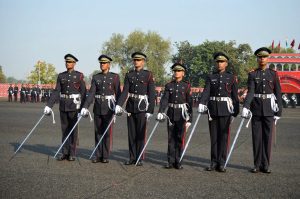The United Nations Security Council (UNSC) stands as a crucial pillar of global peace and security, playing a pivotal role in addressing international conflicts and promoting stability.
NDA 1 2024 UNSC Lecture
As one of the six principal organs of the United Nations (UN), the UNSC carries immense responsibility and authority. This article delves into the UNSC’s functions, structure, decision-making process, and its significance in the contemporary world.
1. Background and Establishment of the UNSC
The UNSC was established on June 26, 1945, following the end of World War II, with the primary objective of maintaining international peace and security. Its creation was a response to the failures of the League of Nations and the devastating consequences of global conflicts. The founding members of the UNSC were China, France, the Soviet Union, the United Kingdom, and the United States, each possessing a permanent seat with veto power.
2. Structure and Membership
The UNSC consists of 15 member states, including five permanent members (China, France, Russia, the United Kingdom, and the United States) and ten non-permanent members elected for two-year terms by the General Assembly. The non-permanent members are chosen based on equitable geographical representation, ensuring diverse perspectives in decision-making.
3. Functions and Powers
The primary functions of the UNSC are outlined in Chapter V of the UN Charter, emphasizing the maintenance of international peace and security through diplomatic, humanitarian, and military measures. Key powers and responsibilities of the UNSC include:
- Peacekeeping Operations: Authorizing peacekeeping missions to resolve conflicts and stabilize regions affected by violence or instability.
- Imposing Sanctions: Imposing economic and diplomatic sanctions on countries or entities that pose threats to international peace and security.
- Mandating Military Action: Authorizing military interventions or peace enforcement actions in situations where peaceful means have failed to resolve conflicts.
- Arms Control: Monitoring and regulating the proliferation of weapons of mass destruction (WMDs) and conventional arms to prevent their misuse.
4. Decision-Making Process
Decisions within the UNSC require the affirmative votes of at least nine of its fifteen members, including the concurring votes of all five permanent members. The concept of the “veto power” held by the permanent members grants them the ability to block any substantive resolution, highlighting the importance of consensus-building and diplomatic negotiations.
5. Significance and Criticisms
The UNSC plays a crucial role in shaping global responses to conflicts, humanitarian crises, and security threats. However, it has faced criticisms regarding issues such as the unequal distribution of power among permanent members, delays in decision-making, and challenges in addressing complex geopolitical dynamics.
Despite these challenges, the UNSC remains a vital forum for international cooperation and conflict resolution, highlighting the importance of multilateralism in addressing global challenges.
Conclusion
The United Nations Security Council stands as a cornerstone of international peace and security, embodying the collective responsibility of nations to uphold stability and prevent conflicts. Its diverse membership, decision-making mechanisms, and mandate reflect the complex dynamics of global governance. While facing criticisms and challenges, the UNSC continues to play a critical role in fostering dialogue, peacekeeping efforts, and diplomatic solutions to complex international issues.



















